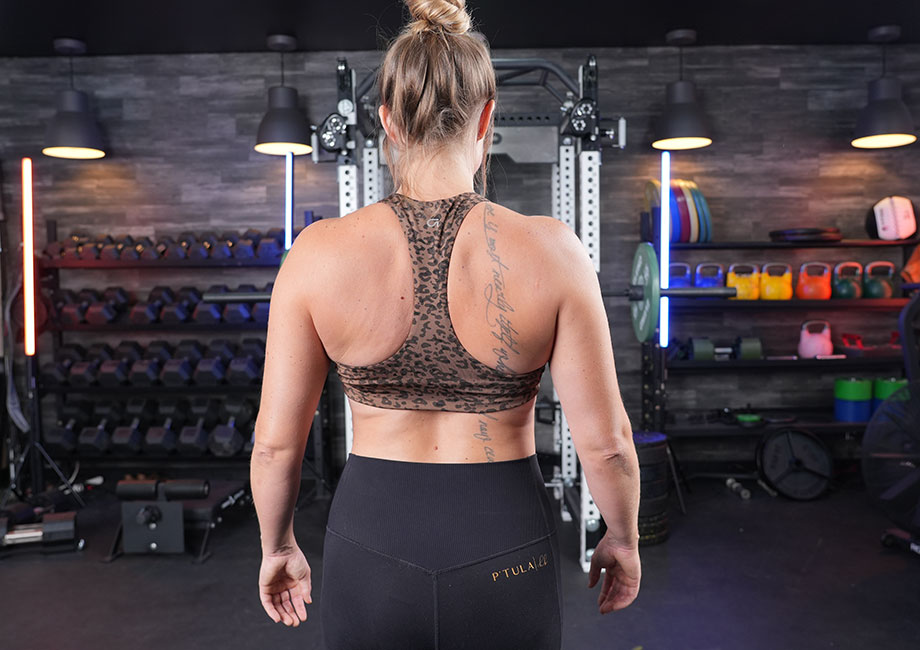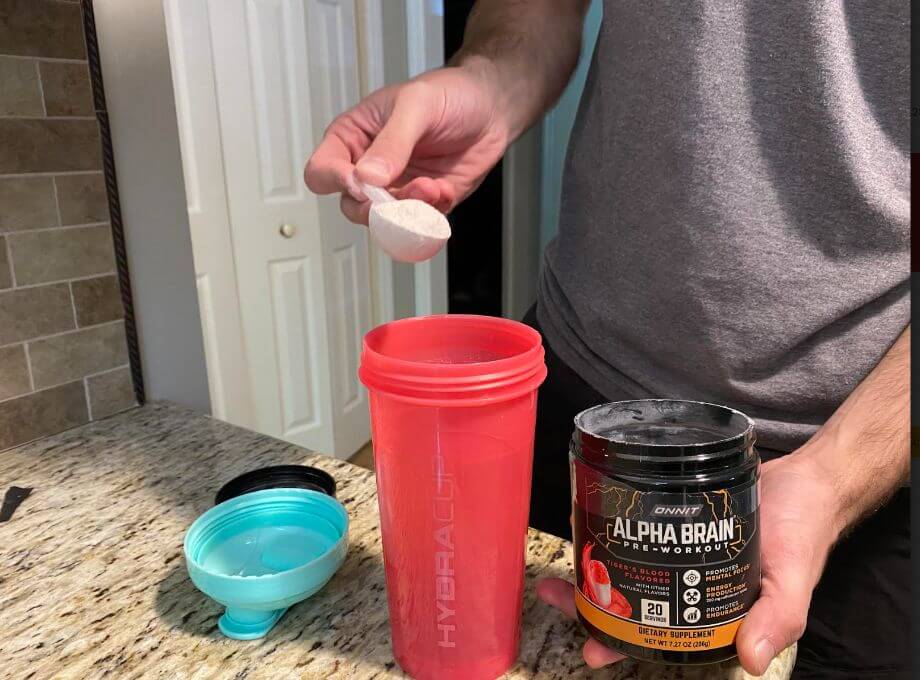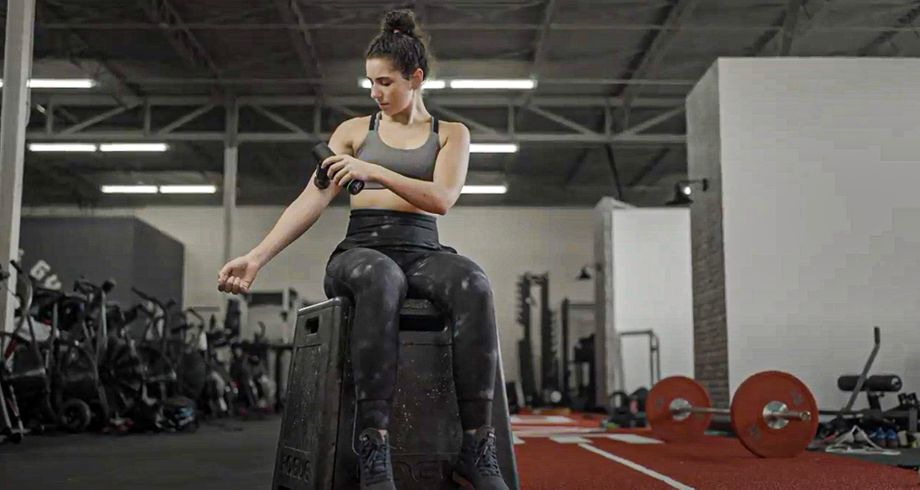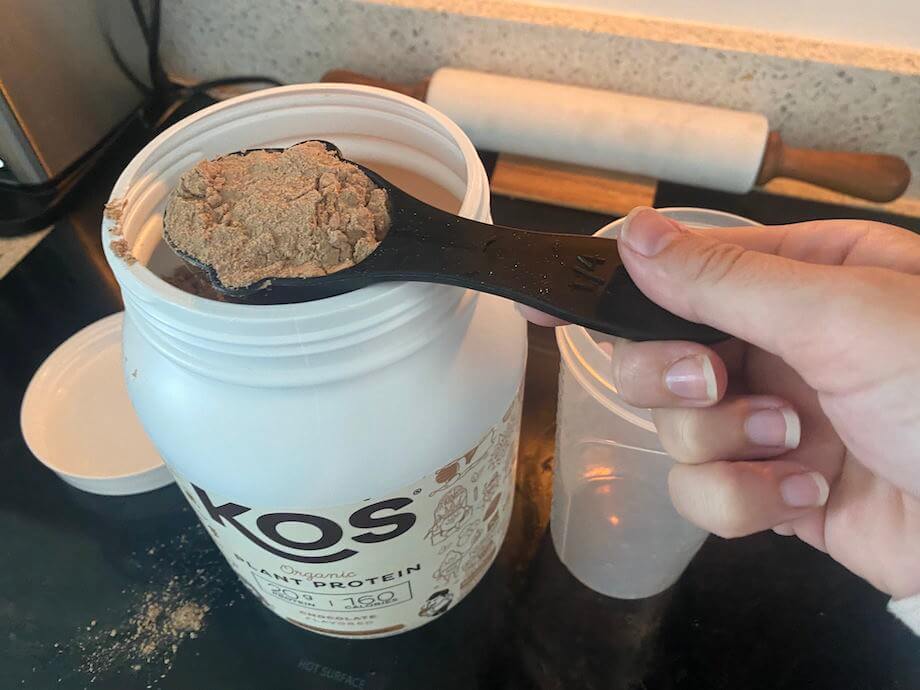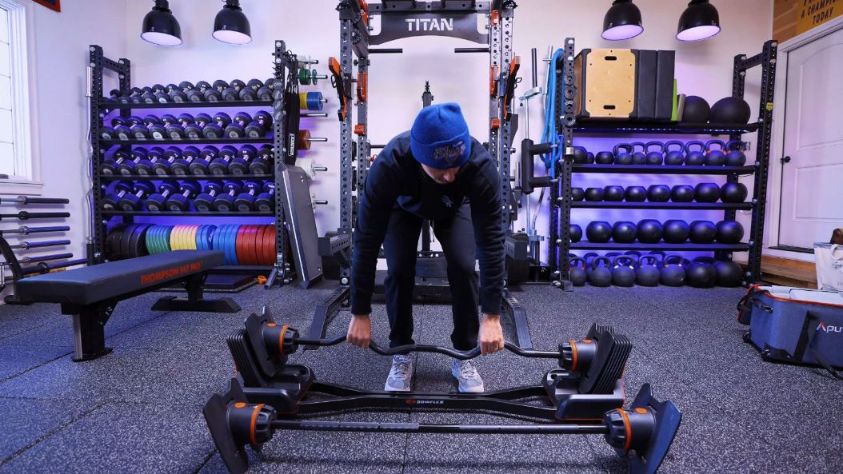Stand tall. Sit up straight. Hold your head high. These common phrases center around one of the most overlooked—but important—pillars of fitness: good posture.
How you sit (or stand) says a lot about your self-confidence and self-esteem. Walk into a meeting with your body and brain properly aligned, and you’ll instantly make your presence known. On the other hand, let your boss see you slouching in your desk chair, and you’ll surely have more problems than lower back pain, tension headaches, and weak core muscles.
RELATED: Functional Core Exercises
As a certified personal trainer (CPT) and writer who spends long periods of time on my laptop, I’ll be the first to admit that it’s easy to forget the benefits of good posture. However, it’s also not difficult to master the fundamentals of good posture.
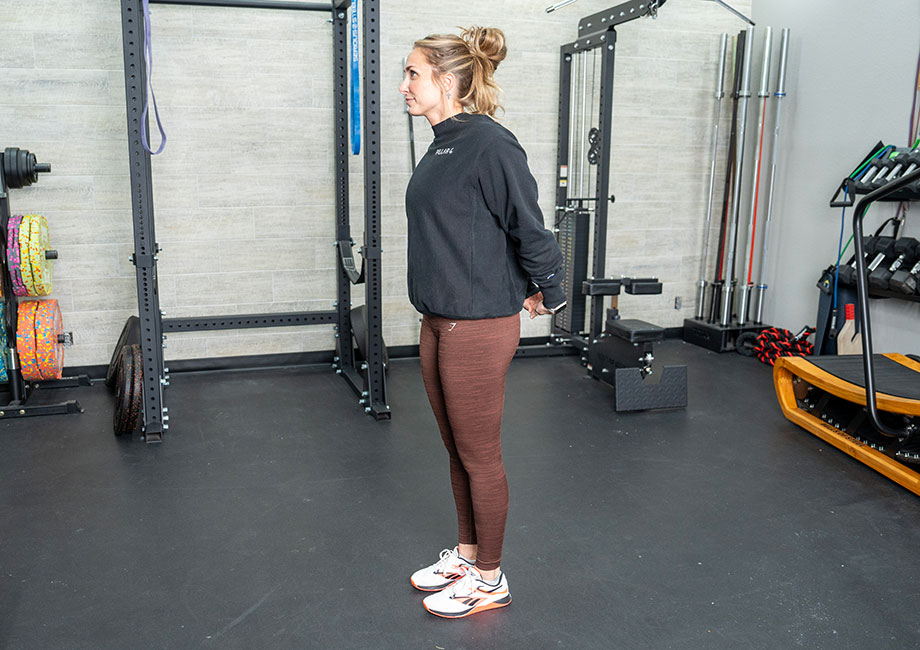
Why does this all matter? From protecting your ligaments to increasing your lung capacity to improving your muscle strength, there are several reasons to aim for perfect posture. Plus, good posture plays a pivotal role in staying safe while lifting weights and completing your exercise routine.
After thousands of hours sitting at coffee shops, libraries, and offices to get my work done over the years, I’ve learned what to do and what not to do to support a strong, healthy spine and sharp mind. In this article, I’ll break down posture benefits and give you practical tips to ensure you’re taking care of a critical component of your health and well-being.
Key Takeaways
- Some of the main benefits of good posture are pain prevention, better breathing, good digestion, and better core strength.
- Some studies have shown that good posture improves self-confidence¹.
- Good posture² means maintaining a neutral alignment in your spine, with your shoulders back but relaxed, maintaining the natural curvature of your neck, mid and low back. To find good posture, spread your feet shoulder-width apart, evenly distribute your body weight, and keep your ears above your shoulders and your shoulders in line with your hips.
What Are the Benefits of Good Posture?
Bad posture can pave the way for issues like muscle tension, low back pain, neck pain, and poor energy levels. However, keeping your body in the right position can have a positive impact on everything from your breathing to your digestion. Let’s explore the benefits of good posture to see why you should stand (and sit) tall.
1. May Help With Pain Prevention
It’s no secret that lower back pain is one of the most common problems that force people to seek medical care. According to The Harvard Gazette3, lower back pain costs the U.S. healthcare system an estimated $100 billion annually. That’s a lot of money being spent on something that may be preventable in many cases.
While back pain can stem from a number of factors—including incorrect weightlifting technique or going too heavy—poor posture is one of the main culprits. Luckily, you can put yourself in a pain-free position by focusing on a few key points:
- Keeping your spine in a neutral position
- Keep your ears over your shoulders
- Evenly distribute your weight when standing
If you’ve been dealing with persistent neck and back pain, better posture will place less stress on your muscles, ligaments, and tendons. Be patient with the process, as it can take some time for your body to adjust after months (or years) of bad habits.
RELATED: Best Back Exercises
2. Can Help Improve Your Breathing
Slouching doesn’t just give off a disengaged vibe; it also limits your lung capacity. Hunching over causes your thoracic cavity—the hollow space in your chest that contains your heart, lungs, and other organs—to become compressed. This makes deep breathing far more difficult, as your intercostal muscles and diaphragm can’t work efficiently.
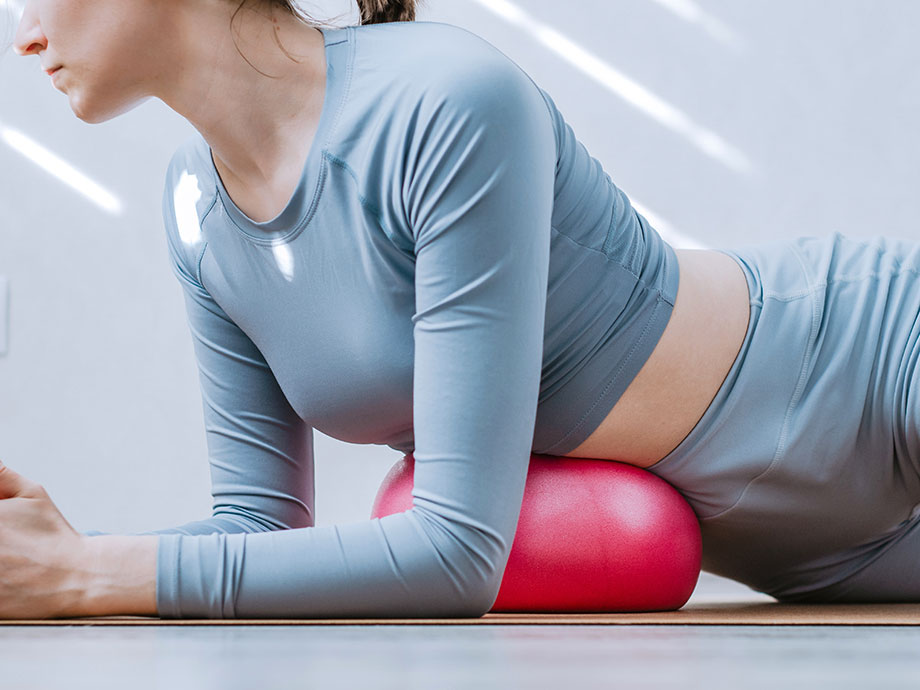
Just how much does good posture play a role in better breathing? According to a 2018 study⁴, a prolonged slouch position may induce breathing disorders and affect structures such as the heart and phrenic nerve, which controls your diaphragm. Participants who performed the pulmonary function test using an upright sitting position had a significantly higher sniff nasal inspiratory pressure (SNIP) score, suggesting that proper postural alignment positively affects the range of motion, mobility, and overall function of the diaphragm.
Essentially, good posture allows for more efficient and effective breathing. Your lungs can fully expand, and your blood vessels can transport oxygen to tissues and remove carbon dioxide. Sounds like a recipe for success to me.
RELATED: Does Cardio Lower Blood Pressure?
3. May Support Better Digestion
Sipping on the best greens powder and getting quality sleep are two ways to support better digestion. You may also be surprised to learn that good posture helps keep things running smoothly.
First, proper posture allows your stomach, intestines, and liver adequate space to function properly. Hunching over compresses these vital organs, which can lead to inefficient digestion. According to a 2003 study in the Journal of the British Society of Gastroenterology⁵, body posture can significantly influence intestinal gas propulsion, with subjects in the upright position demonstrating much less gas retention than those in a supine position.
Meanwhile, a 2021 case study⁶ involving a patient with upper cross syndrome—a condition caused by prolonged poor posture—also showed some interesting connections between posture and digestive health. In addition to neck, upper back, and sternum pain, the 35-year-old female dealt with gastroesophageal reflux disease (GERD). After receiving corrective treatments, her posture improved, and she reported full pain resolution.
RELATED: Best Prebiotics
The researchers concluded that while the musculoskeletal abnormalities and GERD were corrected with appropriate therapy, the case demonstrates that compromised posture due to repetitive and excessive sitting can make people more susceptible to pathological conditions.
4. Can Help Enhance Your Core Strength
Even if you don’t have six-pack (ab)spirations, you should still concentrate on building a strong core. Good posture promotes that by encouraging you to engage your abdominal and lower-back muscles. This will help protect your spine—which is especially important if you have a sedentary job.
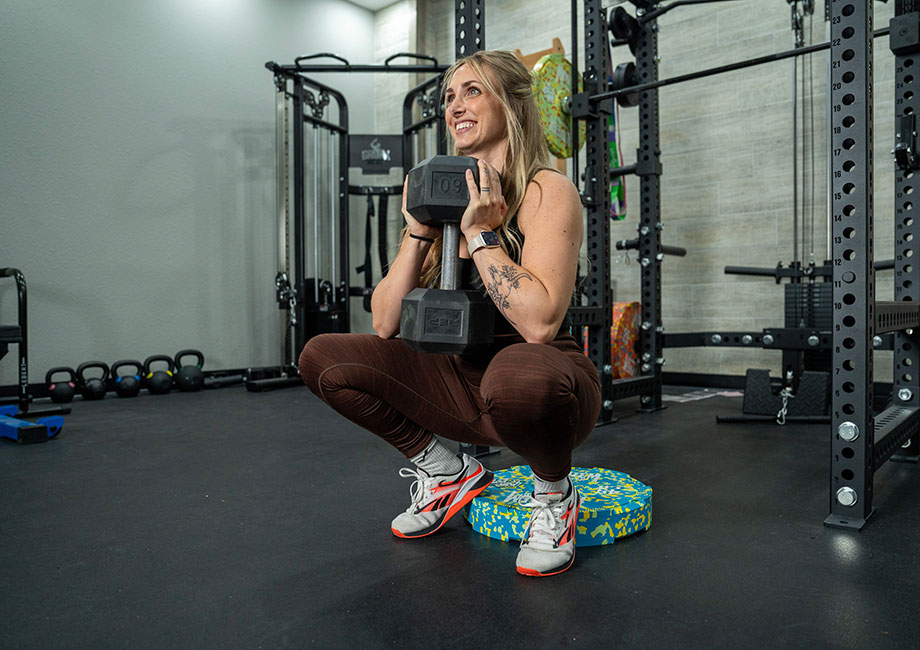
Moreover, good core strength is essential for getting the most out of your lifts. Whether you’re crushing a set of back squats, attempting a PR on the deadlift, or hitting barbell rows on back day, you need a well-developed core to support your strength- and muscle-building efforts. Combining good postural habits with ab exercises like planks, sit-ups, and dead bugs can help construct a rock-solid midsection.
RELATED: Best Ab Exercises
5. May Reduce Stress on Your Bones and Joints
Your joints already handle quite a bit with regular activities. They undergo even more stress when you’re strength training. Why put them in a disadvantageous position by failing to maintain good posture throughout the day?
Whether you’re sitting or standing, it’s important to have a balanced body position. Leaning to one side in your desk chair for hours on end can wreak havoc on your hips and lower back. Favoring one leg instead of spreading your weight evenly across both feet when standing can also inflict similar damage. I have a tendency to do that when I’m at social events, which forces me to be even more aware of how I’m standing to protect my knees, hips, and ankles.
RELATED: Best Exercise Equipment for Bad Knees
Proper posture, however, ensures that your bones and joints don’t bear too heavy of a load. And if you want to continue making gains in the gym, you need to do everything possible to take care of those structures.
6. Supports Optimal Spine and Neck Health
Your spine has four natural curves or regions: the cervical, thoracic, lumbar, and sacral. These curves help absorb and distribute stress from everyday activities like walking to intense exercise like CrossFit. Unfortunately, our tech-driven society has resulted in many of us being glued to devices all day, which can cause major problems for your spine and neck health.
RELATED: Thoracic Mobility Exercises
Ask any physical therapist about postural issues, and I’ll bet you’ll hear the phrase “text neck” or “smartphone slump” mentioned quite often. Looking down at your phone or computer can cause major strain on your neck muscles, leading to stiffness, pain, and inflammation. This can be made even worse if you don’t utilize proper ergonomics in your workspace setup.
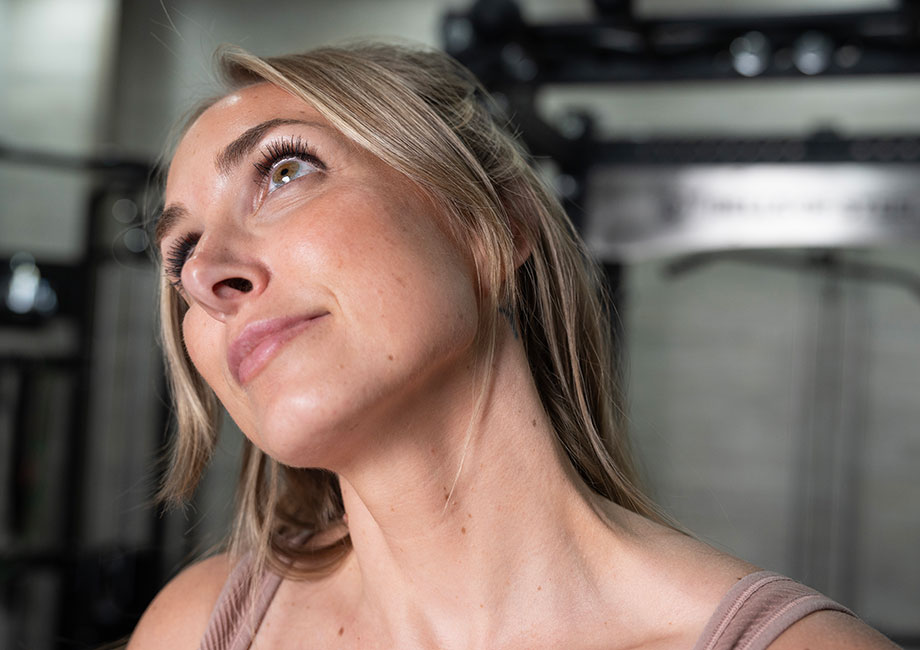
Spine or neck issues can be quite debilitating, leaving you frustrated and unable to perform at your best. If you want fewer headaches and more mobility, focus on maintaining good posture at all times so you’re not stuck on the sidelines.
RELATED: Neck Exercises
What Is Good Posture?
We’ve gone over the benefits of good posture, but what exactly does this look like? According to Harvard Health⁷, the components that comprise good posture include:
- Chin is parallel to the floor
- Shoulders are even (roll your shoulders up, back, and down to help achieve this)
- Neutral spine (no flexing or arching to overemphasize the curve in your lower back)
- Arms are at your sides with your elbows straight and even
- Abdominal muscles are braced
- Hips are even
- Knees are even and pointing straight ahead
- Body weight is distributed evenly on both feet

Checking those boxes is just one part of the process. As a CPT, I’d also encourage you to include a mix of strength and core exercises to support a stable spine. This will help build muscular strength and endurance, improve your mobility, range of motion, and flexibility, and reduce your risk of injury.
RELATED: Beginner Core Workout
10 Exercises That Support Proper Posture
So, what are some key movements to include in your program? Here’s a quick overview of 10 of my favorite exercises that promote proper posture:
- Plank: A simple bodyweight exercise that targets your rectus abdominis, erector spinae, and other core muscles.
- Side plank: This plank variation targets your obliques while engaging your glutes and hip muscles.
- Dead bug: Activates your deep core muscles and challenges your coordination.
- Bridge: Engages your entire posterior chain and can be made more difficult with single-leg or weighted variations.
- Bird dog: A low-intensity movement you’ll often see in yoga classes that can help reduce lower back pain and improve your balance.
- Good morning: Helps develop your hip hinge mechanics, which will assist in other lifts.
- Deadlift: The king of posterior chain exercises.
- Rows: Helps develop a stronger upper body while engaging your core.
- Hanging leg raise: A full-body exercise that tests your grip and core strength. Beginners can start with hanging knee tucks or perform leg raises on the floor.
- Russian twist: Great for rotational strength and building stronger obliques.
RELATED: Best Core Exercises Equipment
Benefits of Good Posture: Final Thoughts
Posture matters much more than most people think. What may seem like a fairly insignificant aspect of daily life can have a major impact on your overall health and happiness. If you don’t engage your core muscles and keep your head and shoulders aligned properly while sitting, you may have difficulty breathing, and your lower back and neck muscles will be compromised. If you don’t distribute your weight evenly while standing, your hips, knees, ankles, and feet will suffer the consequences.
Just like it takes time to refine your lifting technique, it takes time to unlearn bad habits and implement better ones. Being aware of your body is the first step. Then, it’s all about consistently practicing good posture no matter where you are. Believe me, your brain and body will thank you for it.
Benefits of Good Posture: FAQs
Why is it important to keep good posture?
Keeping good posture has a number of health and wellness benefits, including helping maintain proper spinal alignment, reducing the risk of back pain and injury, and improving your breathing. It also helps enhance your core strength, which can assist with your performance in the gym.
Why is good posture attractive?
Good posture can be an attractive quality because it enhances your physical appearance by making you look taller while showcasing confidence and composure.
What happens when you correct your posture?
Correcting your posture can alleviate back or neck pain, improve your breathing and digestion, increase your energy levels, and make you more confident.
What does good posture say about someone?
While bad posture isn’t necessarily a reflection of a person’s character, good posture can suggest someone is mindful of their health and appearance.
Does good posture make you look confident?
Yes, good posture can make you look strong and self-assured. On the other hand, poor posture may signal a lack of confidence.
References
- Briñol, Pablo & Petty, Richard & Wagner, Benjamin. (2009). Body posture effects on self‐evaluation: A self‐validation approach. European Journal of Social Psychology. 39. 1053 – 1064. 10.1002/ejsp.607.
- Professional, C. C. M. (n.d.-a). Posture. Cleveland Clinic. https://my.clevelandclinic.org/health/articles/posture
- Mitchell, J. (2024, March 8). Despite their prevalence, arthritis, neck, and back pain receive few research dollars. Harvard Gazette. https://news.harvard.edu/gazette/story/2024/03/despite-prevalence-arthritis-neck-and-back-pain-receive-few-research-dollars/
- Albarrati, A., Zafar, H., Alghadir, A. H., & Anwer, S. (2018). Effect of Upright and Slouched Sitting Postures on the Respiratory Muscle Strength in Healthy Young Males. BioMed research international, 2018, 3058970. https://doi.org/10.1155/2018/3058970
- Dainese, R., Serra, J., Azpiroz, F., & Malagelada, J. R. (2003). Influence of body posture on intestinal transit of gas. Gut, 52(7), 971–974. https://doi.org/10.1136/gut.52.7.971
- Chu, E. C., & Butler, K. R. (2021). Resolution of Gastroesophageal Reflux Disease Following Correction for Upper Cross Syndrome-A Case Study and Brief Review. Clinics and practice, 11(2), 322–326. https://doi.org/10.3390/clinpract11020045
- Harvard Health. (2017, January 24). Why good posture matters. https://www.health.harvard.edu/staying-healthy/why-good-posture-matters



